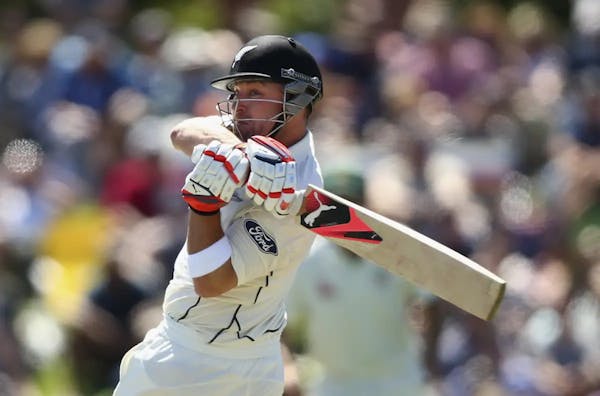 ON THIS DAY
ON THIS DAYNew Zealand skipper Brendon McCullum was in unusual form during the late 2013 and early 2014. His last few scores before the historical 302-run knock against India on February 18, 2014, which saved an innings defeat and the series for the hosts, read 123, 9, 37, 12, 224, 1 and 8.
Hence, it was only fitting that he pulled off an improbable knock to become the first Kiwi batsman to score a triple century.
India’s tour of New Zealand in 2014 was a forgettable one. They had lost the five-match ODI series 4-0 and were trailing the two-match Test series 1-0 when some strong batting display by Ajinkya Rahane (118), Shikhar Dhawan (98) and MS Dhoni (68) in the first innings of the second Test saw the visitors take a 246-run lead.
An innings defeat and the series were both at stake for the hosts, but this was the closest India would come to winning in their entire tour. Following a 192-run collapse on their first dig, New Zealand headed for a similar route as Zaheer Khan removed Peter Fulton, Hamish Rutherford and Kane Williamson for just 52 runs within the first 17 overs.
When Mohammed Shami dismissed Tom Latham in the 35th over, and New Zealand broke for lunch with the scorecard reading 87/4, India were hopeful of salvaging a win in an otherwise disappointing series.
The hosts started steadying their ship through Captain McCullum and BJ Watling post-lunch, and by the drinks break later in the day, New Zealand was 213/5 after 83 overs. McCullum and Watling were on 114 and 52 runs, respectively, as the Basin Reserve geared up for two remaining days of gripping Test cricket.
Indian bowlers failed to curb the duo’s enthusiasm on the fourth day, as McCullum brought up his 150 post-drinks, and Watling scored his century post-lunch to stitch up a 300-run partnership for the sixth wicket. McCullum would soon bring up his double century in 395 balls, which had a whopping 24 boundaries and a six.
Brendon McCullum becomes the first @BLACKCAPS batsman to score 300 runs in a Test innings #NZvInd pic.twitter.com/r3Q4xD2MZd
— ICC (@ICC) February 17, 2014
Fielding for two full days is psychologically taxing, and Virat Kohli was seen taking over gloves duty from Dhoni for a brief period as well. India eventually got a breakthrough when the new ball was taken in the 160th over, and Watling was caught LBW by Shami soon.
However, if Indian fielders were losing steam rigorously amidst all this, McCullum was at the fag end of his focus as well. He had been batting relentlessly since coming to the crease at 52/3 and had tallied 250 runs by the time the Kiwis broke for drinks on Day 4, with the team score reading 493/6. With Watling gone, James Neesham was the last batter for the hosts, and McCullum knew he couldn’t leave India with an achievable target on the last day.
McCullum’s triple hundred had as much a contribution by Neesham as the captain’s own. Playing five brutal sessions wasn’t easy and the skipper had to take a much-needed backseat on Day 4 when Neesham commanded proceedings with a 50 off 79 balls, pausing New Zealand’s score at 571/6.

As the New Zealand skipper directed the ball between slips and gully, he became the first New Zealand batsman to become a triple centurion in the country’s then-87 years of cricket history. Almost the entire Wellington was present on the ground that day as they all rose to acknowledge the unbelievable grit shown by their captain, and the applause went on for four minutes.
New Zealand declared on 680/8, their highest-ever Test score, thereby handing India an unachievable target of 434 runs in three sessions. With India quickly getting reduced to 54/3, there looked an outside chance of a New Zealand win very late in the game as well, but Virat Kohli’s 105 ensured that the match ended on an equilibrium.